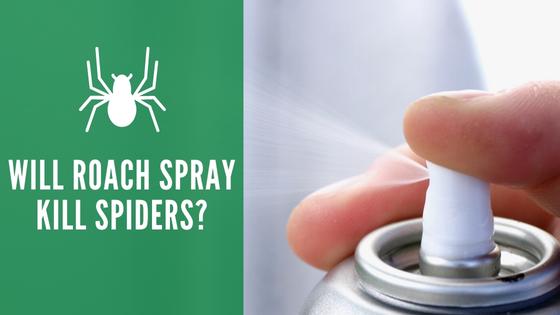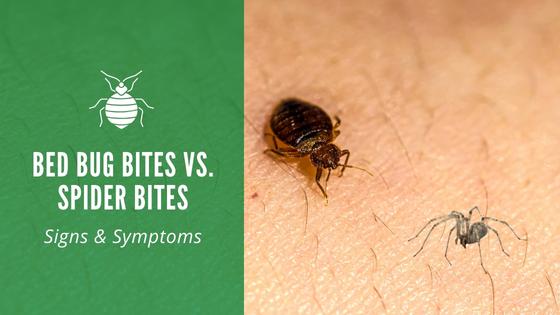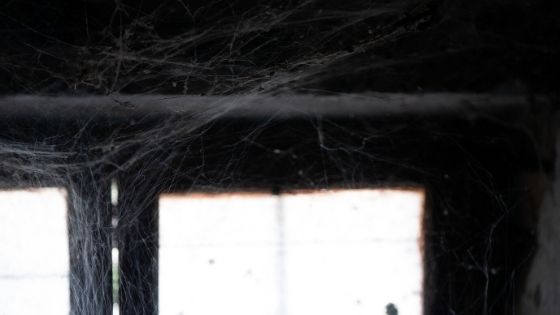Handling Spider Infestations
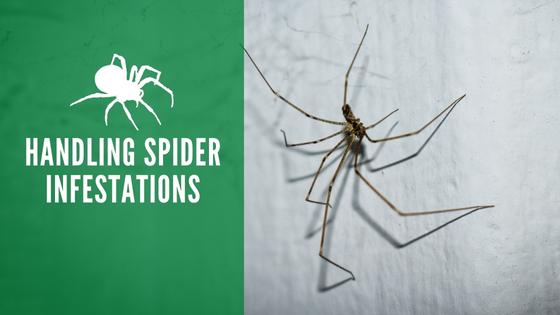
Spiders tend to generate either a sense of fear or awe. Whichever side of the fence you rest on regarding spiders, you might find it interesting to know that you’re never far from one. In a recent study of 50 homes, cobweb spiders were found in every single one.
Although most spiders prefer to stay in out-of-the-way spaces, you can detect an infestation by watching for a few telltale clues that their populations are growing on your property.
Signs of a Spider Infestation
If you see one spider, you can typically assume that there are more lurking nearby. You can also look for spider webs with their eggs in corners of the ceiling and along less used parts of a room.
Since spiders love to eat flying insects, you can often spot their webs near light sources and other attractants for flies and moths.
Having a lot of bugs around your property, in general, is a sure sign that spiders have also noticed that you’re supplying a readily available food source.
With severe infestations, you could notice spider droppings. These black-brown spots are small but can be visible on light-colored walls. They resemble tiny paint splatters and can stain the paint if they aren’t cleaned up fast enough.
What Causes a Spider Infestation?
If you’ve ever wondered why spiders are associated with Halloween, it’s because they tend to come out more during the fall. Technically, spider infestations can occur year-round, but they have an uptick in sightings when they come out for mating in the late summer and fall seasons.
Spiders also respond to changing outdoor climates. They’ll frequently try to come inside to escape the scorching summer temps or to find a haven from heavy rains.
Spider problems also seem to coincide with other pest problems since they’ll build webs near their favorite food sources. Leaving a spider alone can also lead to them laying eggs that hatch into hundreds of more spiders.
How to Get Rid of an Active Spider Infestation
Whether you recoil at the sight of a spider or kind of like them for being a natural form of pest control, you still don’t want them in your house or on your commercial property. Removing active infestations is critical to ensure that no one gets hurt.
Understand the Risks of Handling Spiders
Squashing a spider doesn’t mean you’ve eliminated the problem because there are likely many more out of sight. You also want to be careful not to get a potentially painful bite.
Brown recluses and black widows are the most common venomous spiders that you’ll come across. While they prefer not to bite you, they might if they get too close to your skin. Keep in mind that even non-venomous spiders can lead to problems such as infected bites or allergic reactions for sensitive individuals. If you don’t know what you are dealing with, then it is best to let the pros handle a spider problem.
Spray for Indoor and Outdoor Pests
Professional sprays quickly put an end to active spider infestations. Usually, you’ll notice a drop-off in spiders right away, and you might even find a few dead ones around. The best part about this method is that the spray can also kill off other types of bugs, too. Being able to end more than one infestation at once helps maximize the effects on your comfort.
Remove Spider Webs and Eggs
While the spray works, you can do a few things around your property to finish the process. Removing spider webs stops other bugs from getting stuck inside, and you’ll want to remove the egg sacs that can hold up to 200 future spiders.
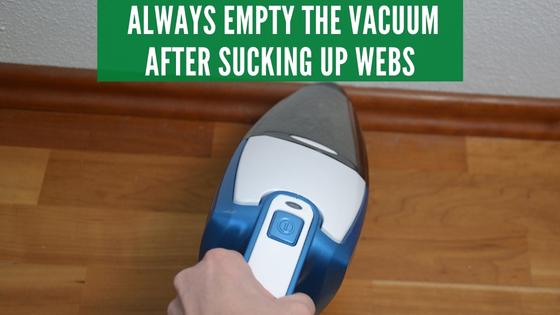
You can use a disposable towel to wipe away the eggs and webs or vacuum them up. If you choose to use a vacuum, then make sure to dispose of the bag afterward. You don’t want spiderlings hatching in your vacuum or transferred to other parts of your home.
How to Prevent Future Spider Infestations
While spiders may invade nearly every home in the world, you don’t have to sit back and let them take over. Once you have a spider-free property, then you can take these steps to keep it that way.
Reduce Access to Your Property
Spiders have to get inside somehow, and one of their preferred routes is through the same cracks around windows and doors that other pests use.
If you can see light through a crack, then assume that a spider can fit through it.
You might need to reapply caulking and weatherstripping around your home’s windows and doors. Fixing small cracks around the plumbing and repairing damaged roofing systems can also stop spiders from getting inside.
Clean Up Debris Around the Perimeter of Your Property
Spiders can naturally coexist with humans when they stay outside, but you still don’t want them near your home or commercial building. A spider crawling in firewood or mulch near an exterior wall is just a few short leg movements from coming indoors.
Check around your property for common spider hiding places. Clearing out piles of leaves and other debris can deter them from coming too close to your home. Ideally, it would be best if you had about three feet or more of space around your home that doesn’t have anything that could attract spiders.
Use a Residual Pesticide
When you arrange for spraying, ask about the residual effects. Although no spray can last forever, the best ones should continue to work for weeks after it is initially put around your property.
Residual pesticides can help kill any spiders that seem to evade detection and hatch after the first spraying. They also help eliminate other insects that try to make your property their new home.
Check Outdoor Gear Before Bringing It Inside
Sheds, basements, and garages are prime spots to find spiders lurking about. If you frequently swap items out for seasonal storage, give them a good inspection before you bring them inside your main living space.
Many spider infestations have started with someone simply bringing in their holiday decorations. Regarding outdoor decor, check your seasonal displays before you box them up for the year. Spiders often create webs along outdoor strings of lights that attract flying insects.
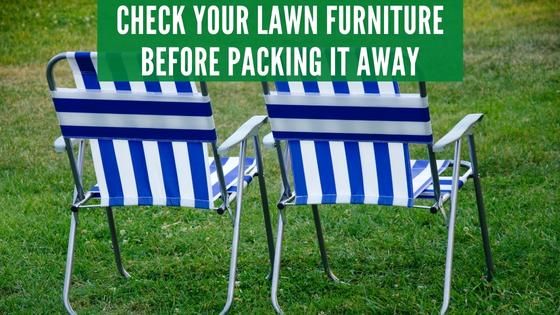
Camping gear and portable lawn furniture are additional culprits for causing infestations. If you’ve left something out overnight, then it is possible that a spider built a web or laid an egg sac without you knowing.
Making sure they are spider-free before you store them in your garage or shed helps prevent your outdoor excursion from causing a spider problem.
Spiders may be beneficial for helping to keep other insect populations down, but that doesn’t mean you want to find one crawling near your bed.
Watching out for spider infestations gives you a clue regarding the overall pest activity level on your property and lets you know when you need to take action to prevent painful bites.

